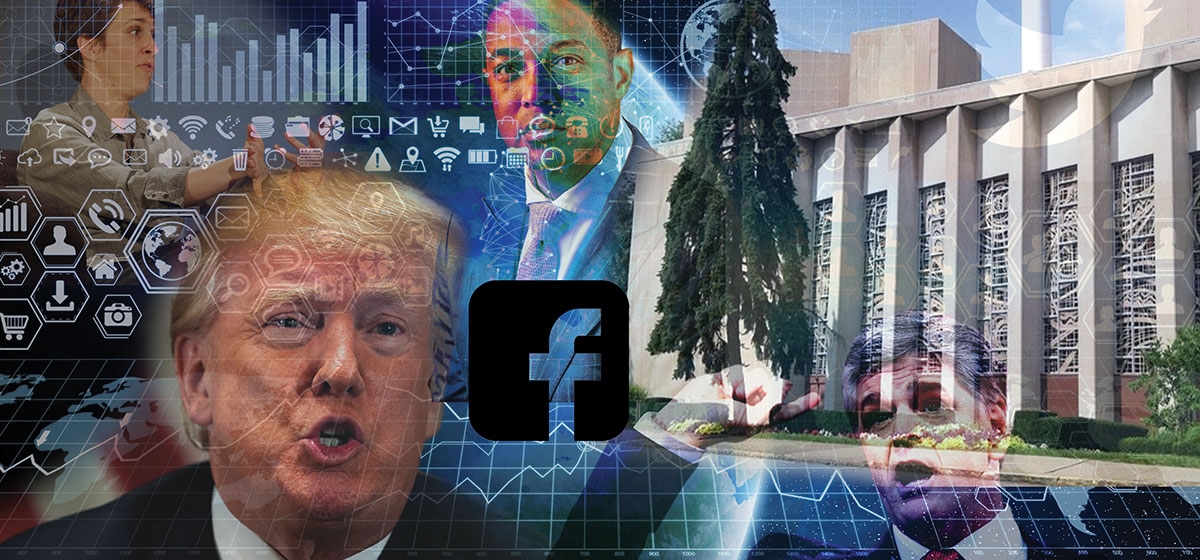A Turning Point for Troubled Times

By almost any objective measure, life in America has never been better. We’re not at war. Poverty is low, unemployment’s even lower, and stocks are sky high. Homicide rates are about where they were in 1950 and half of what they were in 1980. And medical care is better than ever with dramatic breakthroughs occurring seemingly daily.
And yet, there’s a sickness in our country—a grim cocktail of anxiety, fear, stress and antipathy that’s overwhelming people at every level of society.
So if everything’s so good, why do things feel so bad? I nominate five reasons for your consideration.
1. Too much information. The world has become bewilderingly complex and confusing. Supposedly, the last time a person could have comprehended all human knowledge was the late 18th Century. Now, it’s impossible to keep up with the knowledge in your own field. No one understands the multiple directions the world is going at breakneck speeds. It’s as if an infinite number of trains are thundering off from a central station in different directions. You can only ride one and must hold on to that one for dear life.
What does the future hold in artificial intelligence, politics, jobs, health, genomics, money, globalization, and international relations? What role, if any, do human beings, as we understand them, have in the future? No one knows. Concurrently, most of the supportive myths, cultural institutions and religions that have given us security for centuries are under siege and crumbling. No wonder many people have more fear of the future than faith in it.
2. The media. With the rapid decline of one of America’s greatest institutions—the newspaper—a majority of Americans get their news from television. TV news was always a relatively superficial medium. But cable news has become something much worse—a ratings-driven monster, fueling controversy and crisis and dividing people nonstop. CNN, Fox, and MSNBC are the most pernicious poster children. They’re masters of the “gamification” of America, placing everyone on a different team. Us vs. them. Red states vs. blue. Is your team winning? Which enemies are trying to destroy your team? This partisan, opinion-driven media profits most if the sky is always falling and everything is in flames. And if you’re calm and peaceful, there must be something wrong with you.
3. Social media. Undoubtedly some good has come from it, but does it outweigh the bad? Is it social or anti-social media? People have more “friends” but fewer genuine connections. It’s built on algorithms carefully designed to addict people and take increasing amounts of their time. It’s designed to polarize, building a profile of users based on what they look at and feeding them more of the same, ultimately narrowing their world to an echo chamber. Many become obsessed with whatever “critical issue” angers them most and vilify those who would disagree. Some become radicalized.
4. Political rhetoric. In this media world, sound bites work —the more salacious the better. Facts and reputations be damned —the ends justify the means. The President may be the master of this new media realm, but his Democrat rivals aren’t far behind. And one can’t help but wonder how this uncivil and intemperate public dialog affects people.
5. The final problem grows from the preceding four: too many people are becoming unhinged, and too few have the cooler heads we need in order to prevail as a decent nation. People are on edge, and you see it everywhere. On the road, at dinner parties, between old friends, even between parents and their grown children.
Here’s my prescription. Turn off cable news. Ratings are the only thing that will change their ways. Watching that stuff is like eating bad food—it makes you sick.
Spend less time on social media. If you find a thread where everyone is criticizing someone or some point of view, take a moment and consider things from the “enemy” perspective. When people use destructive rhetoric, let them know in a kind and constructive way that they’re part of the problem.
Don’t think you have to understand and keep up with everything. Don’t let politics and events of the day dominate your life. Don’t assume you have the whole truth and the other person is dead wrong. Realize that human interactions are more important than “the burning issues of the day.” Try to be quicker to understand than to judge. Be kind to your friends and family—and to strangers; everyone is just trying to make their way.
Finally, enjoy the beauty of this world.
Much was made nationally about the Tree of Life synagogue shootings happening in Fred Rogers’s neighborhood. While it’s obviously most terrible for those whose family and friends were directly involved, it’s painful for all of us. The shootings have scarred our city.
Though we may not individually bear any responsibility for that, we all are responsible for Pittsburgh’s future. That requires us to do our best in interactions with everyone we meet, because we never know what ripples spread from the paths we walk and the people we encounter.
Fred Rogers’s philosophy was recently distilled into four words—be quiet, be kind. Let’s try that, and, in the spirit of the holidays, let’s each do our part to create Peace on Earth, Good Will to Men.





